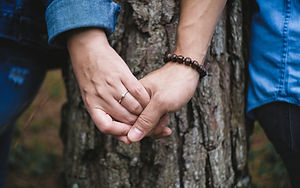How to Help
How Can I Help a Loved One?

Traumatic events in the mountains can have a huge impact on family, friends, and loved ones.
The best thing you can do is just be there for your loved one. Some people find talking about their experience helpful, while others do not want to talk directly about their experience. What is most important is that you are there for your loved one in whatever way they need you to be. Let them know you are there but let them guide what they need. Do not force them to talk about it.
You might notice a change in your loved one's behavior or mood. They may have a shorter temper or seem sad and depressed. These are normal responses immediately after trauma. Try to not take it personally.
However, if these changes continue or your loved one seems at risk for hurting themselves or someone else, please call the crisis line at 1-800-SUICIDE (1-800-784-2433) or dial 9-1-1 in Canada or the US.
Take Care of Yourself
While the focus is often on the person(s) that have been directly affected, these types of events can also affect loved ones. Loved ones, such as partners, family members, and close friends are also at risk for developing stress disorders following traumatic events in the mountains. It is important that you maintain your self care and watch for symptoms affecting your own life such as sleep issues or changes in mood. Surrounding yourself with your support system of friends and family is extremely important. You might also find it helpful to seek support from a counsellor. Remember you need to make sure you take care of yourself, not just your loved one. See What is Self Care?
How Can I Prevent or Prepare for Trauma?

While being safe in the mountains is always the goal, accidents do happen.
Research has shown that you can help prepare yourself for trauma by maintaining your self care. Just as you train for the ski season or a half marathon, it is important to train your mental and emotional well being through self care in preparation for accidents in the mountains. Self care can be promoted by physical exercise, eating healthy nutritious food, getting enough sleep, and stress reduction strategies such as yoga, meditation, massage, and acupuncture. Additionally, knowing who your support system is and maintaining those relationships is very important.
Donate

Cost can be a major barrier in accessing counselling support.
We believe that everyone should have access to support following traumatic events in the mountains. Donate today to help people in your community have access to the support they need to begin their healing journey.
For more information please contact us at info@mountaintraumasupportnetwork.org or use the form here.
